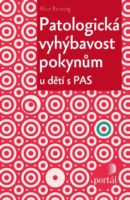Roman Baláž, Lucia Čemová
Medailon autorů:
Dr. Roman Baláž is a researcher at the Institute for Public Policy and Social Work and an assistant professor at the Department of Social Policy and Social Work, FSS MU. His research topics include possibilities and limits of social work with immigrants, comprehensive assessment of problems of immigrants, structural conditions of social work performance.
Lucia Čemová is a PhD. student at the Department of Social Policy and Social Work, FSS MU. Her research interest revolving around topics such as life of the minorities, local immigrant integration and community integration stems from experience as a helping professional within this issue.
Anotace:
OBJECTIVES: The aim of the presented paper is to answer the question “How can social work promote the mainstreaming of integration governance in the local integration of immigrants?” THEORETICAL BASE: The relevant theoretical concepts of the research questions are conceptualized so that they connect two occasionally linked knowledge bases of migration studies and social work in the final discussion. METHODS: The presented paper is a theoretical analysis that emphasizes logical argumentation based on Kuhn’s conception of cumulative science. OUTCOMES: Supporting individuals, optimising interactions and influencing power structures are presented as the possibilities of how social work can promote the mainstreaming of integration governance in the local integration of immigrants. SOCIAL WORK IMPLICATIONS: The mainstreaming of integration governance offers a conceptual framework that is useful for 1) releasing social work practice from the target group perspective and 2) understanding how power structures (e.g. integration policy or social work practice itself) could produce negative phenomena such as institutional or state racism.
Klíčová slova:
social work, migration studies, immigrants, local integration, mainstreaming of integration governance
s. 94–110






